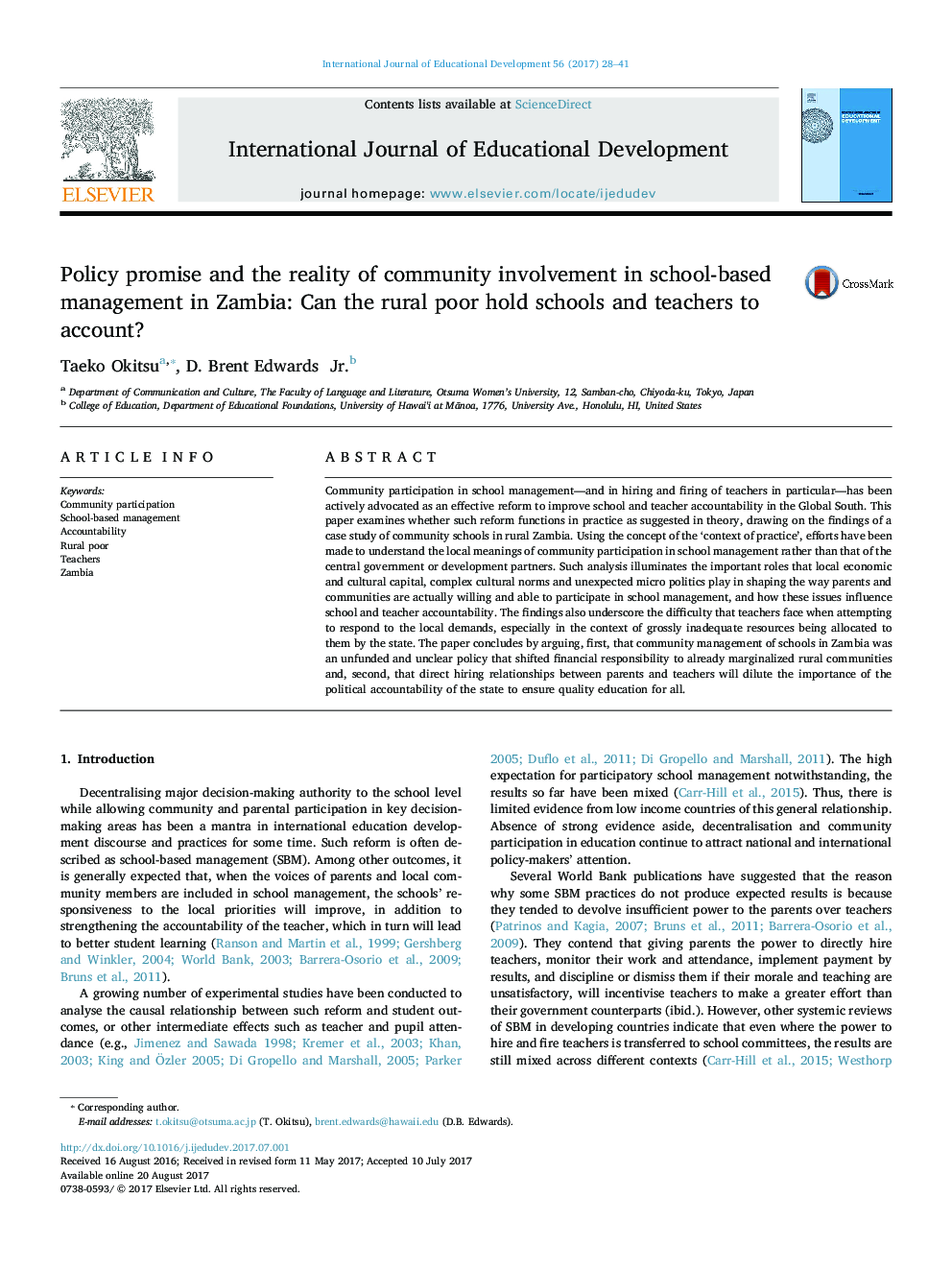| Article ID | Journal | Published Year | Pages | File Type |
|---|---|---|---|---|
| 4938464 | International Journal of Educational Development | 2017 | 14 Pages |
Abstract
Community participation in school management-and in hiring and firing of teachers in particular-has been actively advocated as an effective reform to improve school and teacher accountability in the Global South. This paper examines whether such reform functions in practice as suggested in theory, drawing on the findings of a case study of community schools in rural Zambia. Using the concept of the 'context of practice', efforts have been made to understand the local meanings of community participation in school management rather than that of the central government or development partners. Such analysis illuminates the important roles that local economic and cultural capital, complex cultural norms and unexpected micro politics play in shaping the way parents and communities are actually willing and able to participate in school management, and how these issues influence school and teacher accountability. The findings also underscore the difficulty that teachers face when attempting to respond to the local demands, especially in the context of grossly inadequate resources being allocated to them by the state. The paper concludes by arguing, first, that community management of schools in Zambia was an unfunded and unclear policy that shifted financial responsibility to already marginalized rural communities and, second, that direct hiring relationships between parents and teachers will dilute the importance of the political accountability of the state to ensure quality education for all.
Related Topics
Social Sciences and Humanities
Social Sciences
Development
Authors
Taeko Okitsu, D. Brent Jr.,
